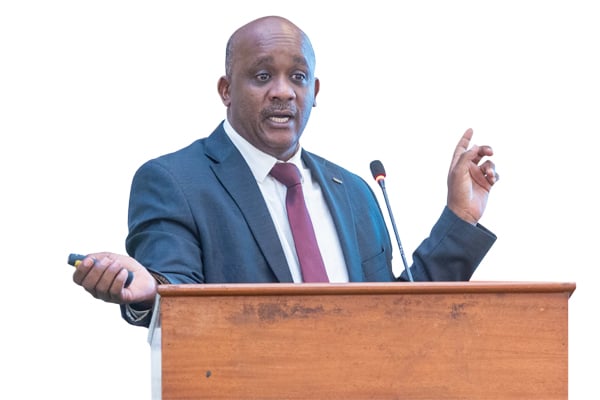Prime
Govt must cut public administration costs and spend more on social services

What you need to know:
- According to the 2024/25 Budget Framework Paper, Ugandans will spend over Shs7.4 trillion on public administration alone.
As the saying goes, the size doesn’t matter but quality; the size of Uganda’s public administration does not correlate with services.
Uganda, with a GDP of $45.57 billion has 82 ministers, 529 Members of Parliament, over 40,000 civil servants and over 1.56 million elected paid politicians, which number is projected to grow to 3.3 million, of which Shs1.4 trillion will be spent on the 2026 general elections.
According to the 2024/25 Budget Framework Paper, Ugandans will spend over Shs7.4 trillion on public administration alone.
Turkey, with a GDP of $ 901.7 billion has a cabinet of 18 while Kenya, with a GDP of 113.4 billion has 21 cabinet secretaries (equivalent to ministers). Uganda, with a population of about 47.2 million people has a parliament equal to India which has the biggest population in the world of 1.417 billion people, which is incomprehensible. There is no guarantee that having many officials leads to service delivery, but it is evident that the much spent on public administration would have delivered more services.
In the wake of the looming economic crisis, there is a need to make an honest assessment of the size and cost of public administration and service delivery. The government embarked on the rationalisation and merging of entities-which is fine, but it is silent on the size of government.
Having 82 ministers is not effective, it is costly to the taxpayers for all we need is effective, efficient and adequate services delivered to us. The amount of money spent on furnishing these offices is astronomical. Taking the example of vehicles, the government spends more than Shs760 billion annually on cars. In 2023, local government alone needed Shs35.2 billion to purchase cars. The government spends over Shs900 billion annually on vehicle costs and the cost of wastage of these is also astronomical and unfortunately vested on the taxpayer.
In 2006, the NRM Caucus approved a proposal for a vehicle co-ownership scheme for ministers and civil servants where they would contribute 50 percent on a loan and then after five years, they would own the car. This would save government costs on fuel and maintenance. What happened to this proposal? We need to embrace and implement it.
The National Budget Framework paper 2024/25 recognises the need to reduce wastage by repurposing public expenditure. If we are to achieve the goals set out in the Vision 2040, we must be mindful of spending in the non-productive sectors.
We must be deliberate and invest more in the productive sectors of agriculture, industry and services to boost our economy. Our economy cannot sustain a huge public administration and at the same time deliver services. Government must choose to improve the wellbeing of Ugandans first and then deal with prestigious offices later.
As proposed in various government policies, we must act now to revise public administration expenditure by fostering e-government and rationalisation; the government structure and public administration are bloated and need a fresh redesign to match our level of income to improve services.
Michael Aboneka, Partner: Thomas & Michael Advocates.




